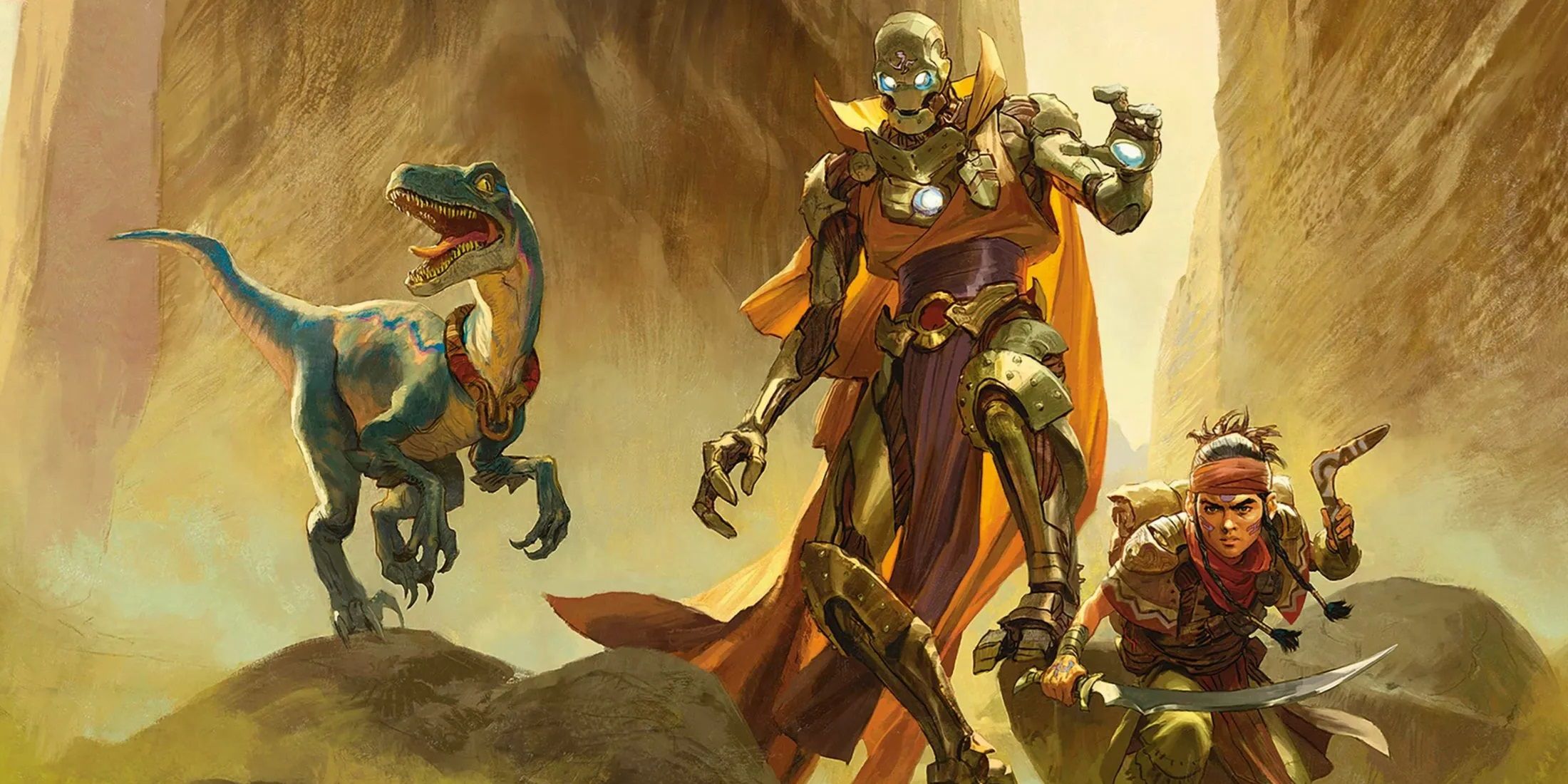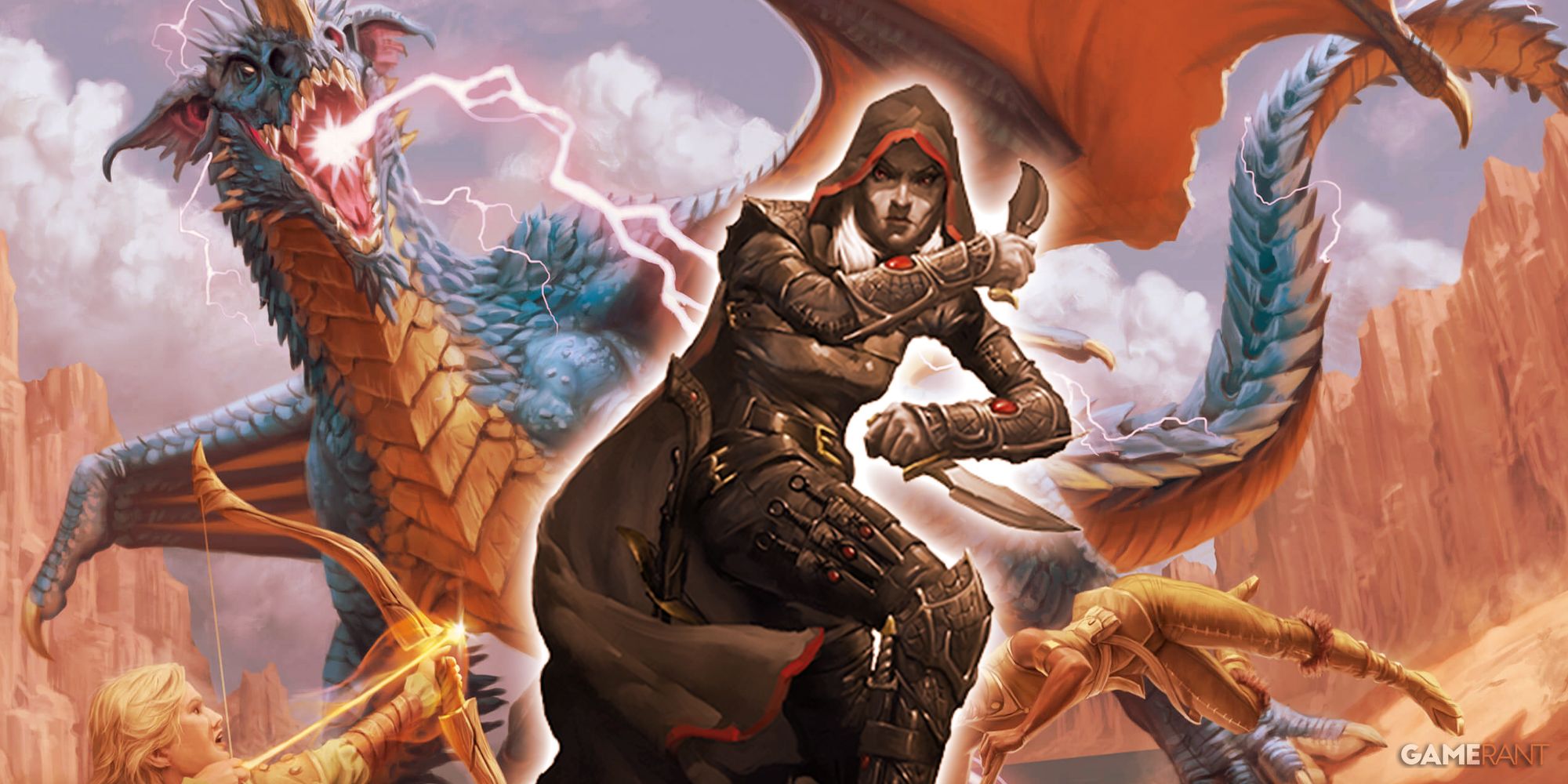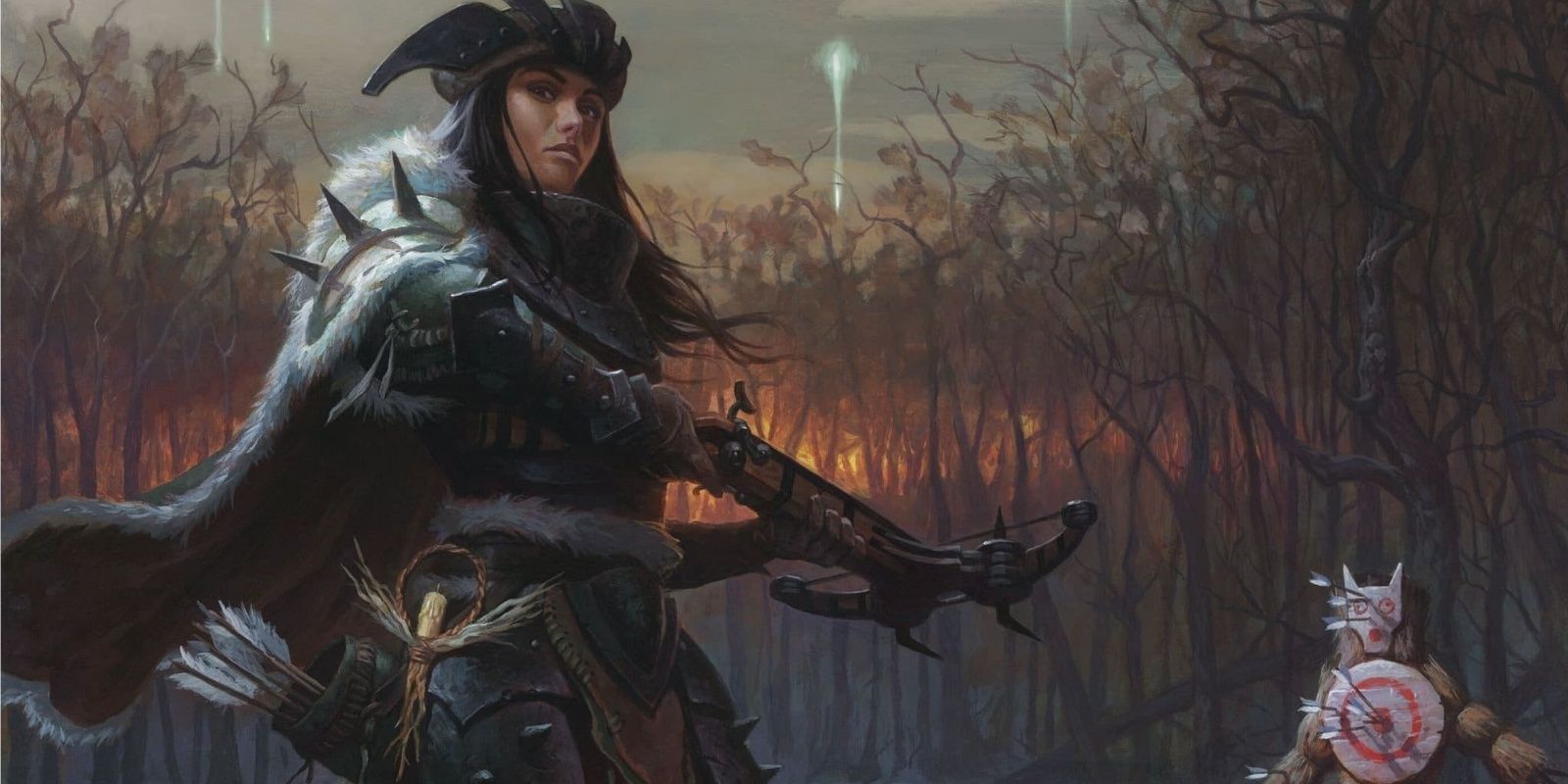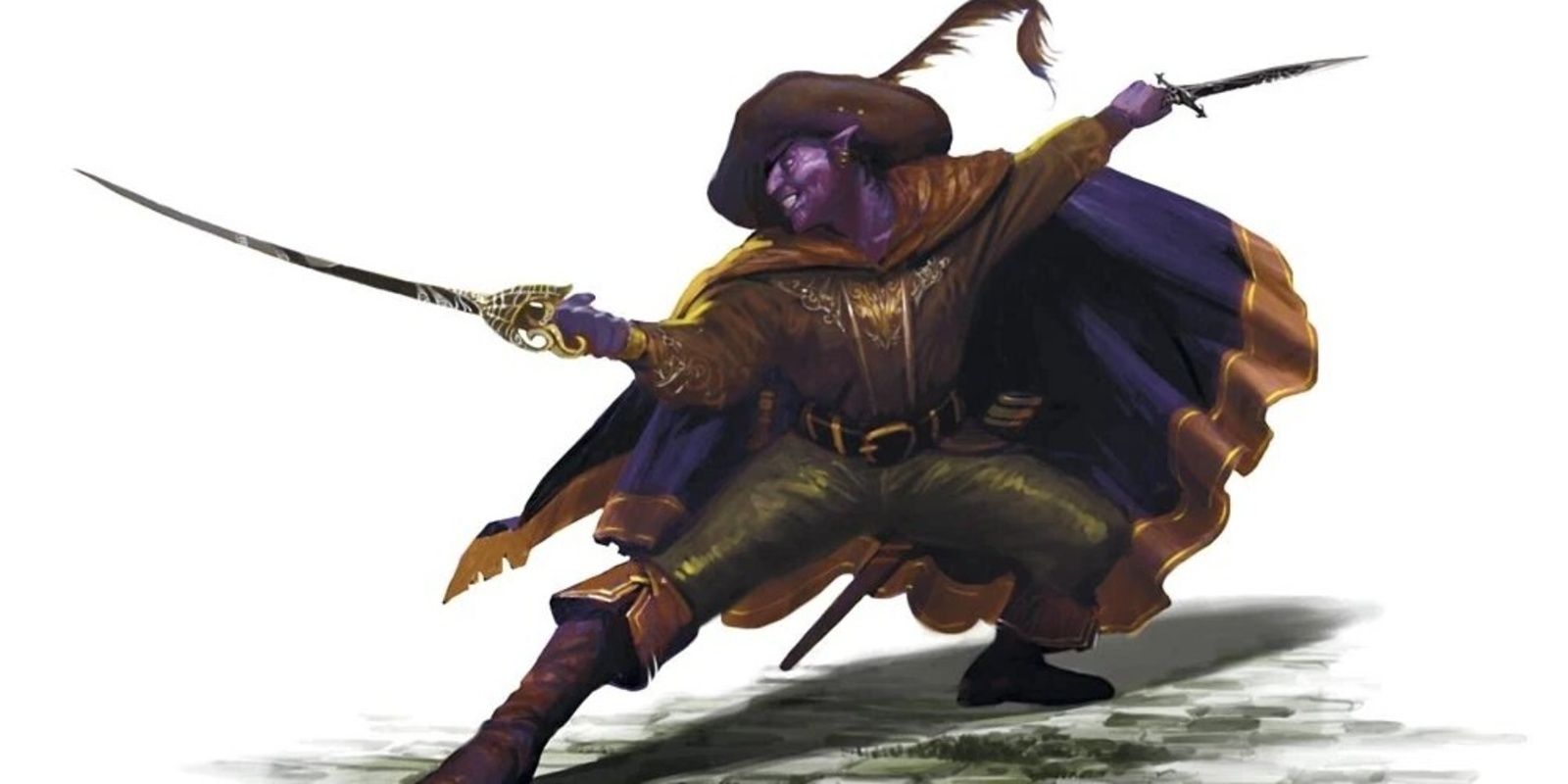In Dungeons & Dragons, rogues are one of the most iconic and easy-to-understand classes, perfect for beginners and veterans alike. They are exactly as advertised: conniving scoundrels armed with cloak and dagger, sneaking through the shadows looking for throats and purses to cut. Their vast utility in and out of combat makes rogues a necessity in any balanced adventuring party.
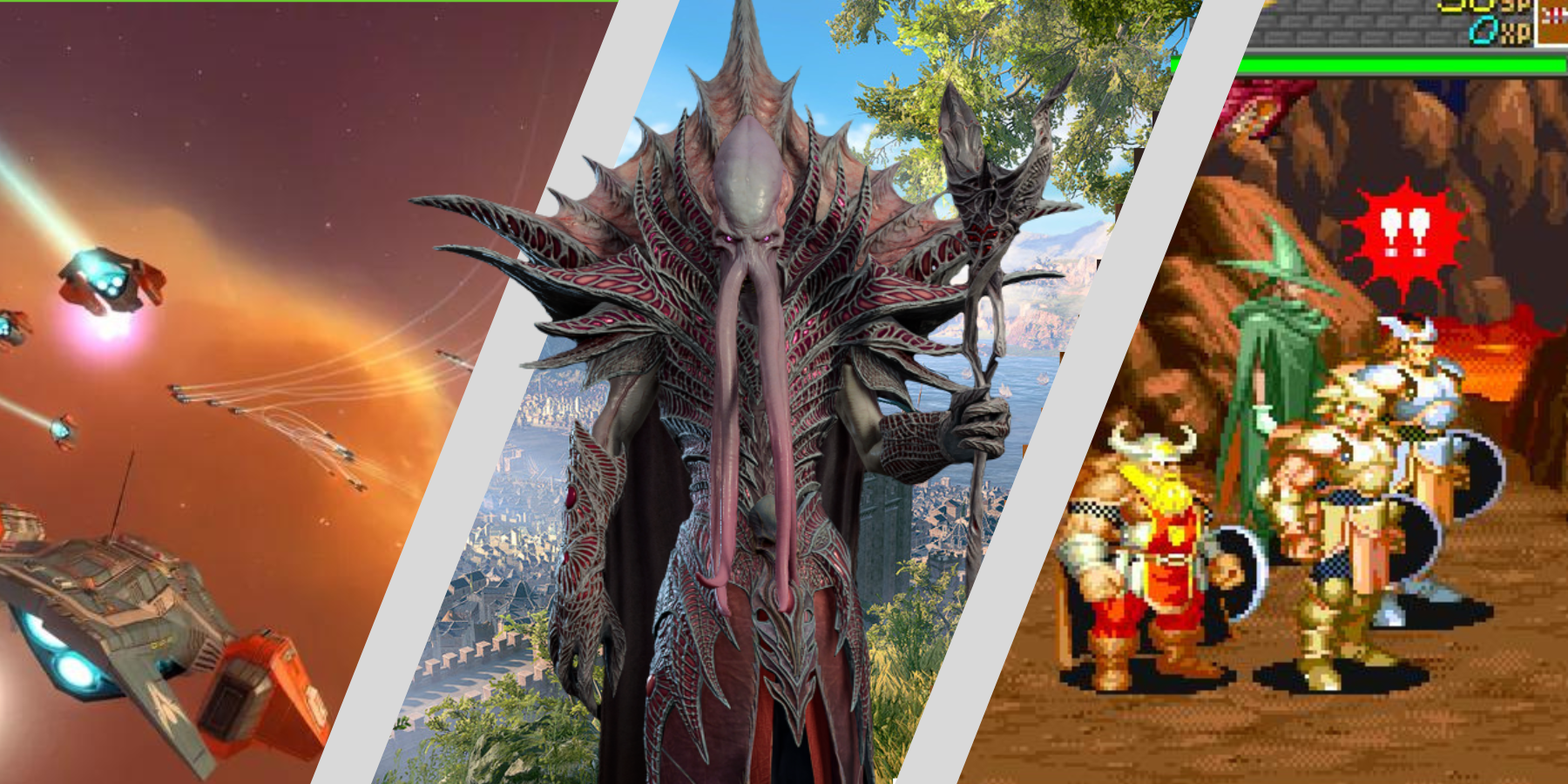
Best Dungeons & Dragons Video Games, Ranked
RPGs and similar genres in the video game world owe their existence to Dungeons & Dragons, and these games embody the franchise well.
However, building a Dungeons & Dragons character takes some work and can be daunting for some newer players. A good Dungeon Master will be more than happy to help out with character creation, but here are a few tips to get players thinking about what kind of rogue they want to be.
Note: This article will be using content from The Player’s Handbook . Additional sources and homebrew content will not be included.
5 Race/Subrace
The Forgotten Realms Has Many Walks of Life
Like any good fantasy world, the Dungeons & Dragons universe contains many otherworldly races. After choosing a character’s class, their race is the next big step. Now, players can play whatever they like to suit their character’s vision. However, each race does have certain unique characteristics called “Racial Traits” that make them better suited for some classes than others.
For example, elves make for excellent rogues, thanks to their +2 to Dexterity and Perception Proficiency. Lightfoot Halflings have bonuses to both Dexterity and Charisma, and their “Naturally Stealthy” trait makes them great at hiding. Forest Gnomes have +1 to Dexterity and can cast Minor Illusion (perfect for creating a diversion), while Tieflings have +2 to Charisma, which is a rogue’s second-most important stat.
4 Ability Scores
The Foundation of All Character Sheets
Dungeons & Dragons uses six base stats: Strength, Dexterity, Constitution, Wisdom, Intelligence, and Charisma. When building a character, players will use a set of six numbers and decide which number to assign to each stat. There are several methods of generating these numbers, from manually rolling dice to using the standard array. The focus here is that different classes prioritize different stats.
When assigning stats to a rogue, Dexterity should always be at the top. The second most important will either be Charisma (for the smooth-talkers) or Intelligence (for the investigators). A good Constitution score is also a good priority since it increases the amount of health points. Last but not least is Strength and Wisdom (since rogues aren’t known for their brute strength or wise life choices).
3 Skill Proficiencies
Building A Rogue With A Specific Set of Skills
Everyone has stuff they’re good at. In Dungeons & Dragons, those things are called Proficiencies. They allow players to add their Proficiency Bonus to any roll regarding that skill. At level 1, rogues can be Proficient in four of the following skills. When choosing them, players should consider which skills their rogue will rely on most, as well as their base stat modifiers.
Skill | Core Stat | What Is It Good For? |
|---|---|---|
Acrobatics | Dexterity | Performing tricky stunts. |
Athletics | Strength | Climbing, swimming, and jumping. |
Deception | Charisma | Telling a convincing lie. |
Insight | Wisdom | Understanding another person's intentions or behavior. |
Intimidation | Charisma | Threatening others into submission. |
Investigation | Intelligence | Searching for clues. |
Perception | Wisdom | Scanning the area. |
Performance | Charisma | Entertaining an audience. |
Persuasion | Charisma | Convincing another person. |
Sleight of Hand | Dexterity | Performing a task discreetly. |
Stealth | Dexterity | Moving without being spotted. |
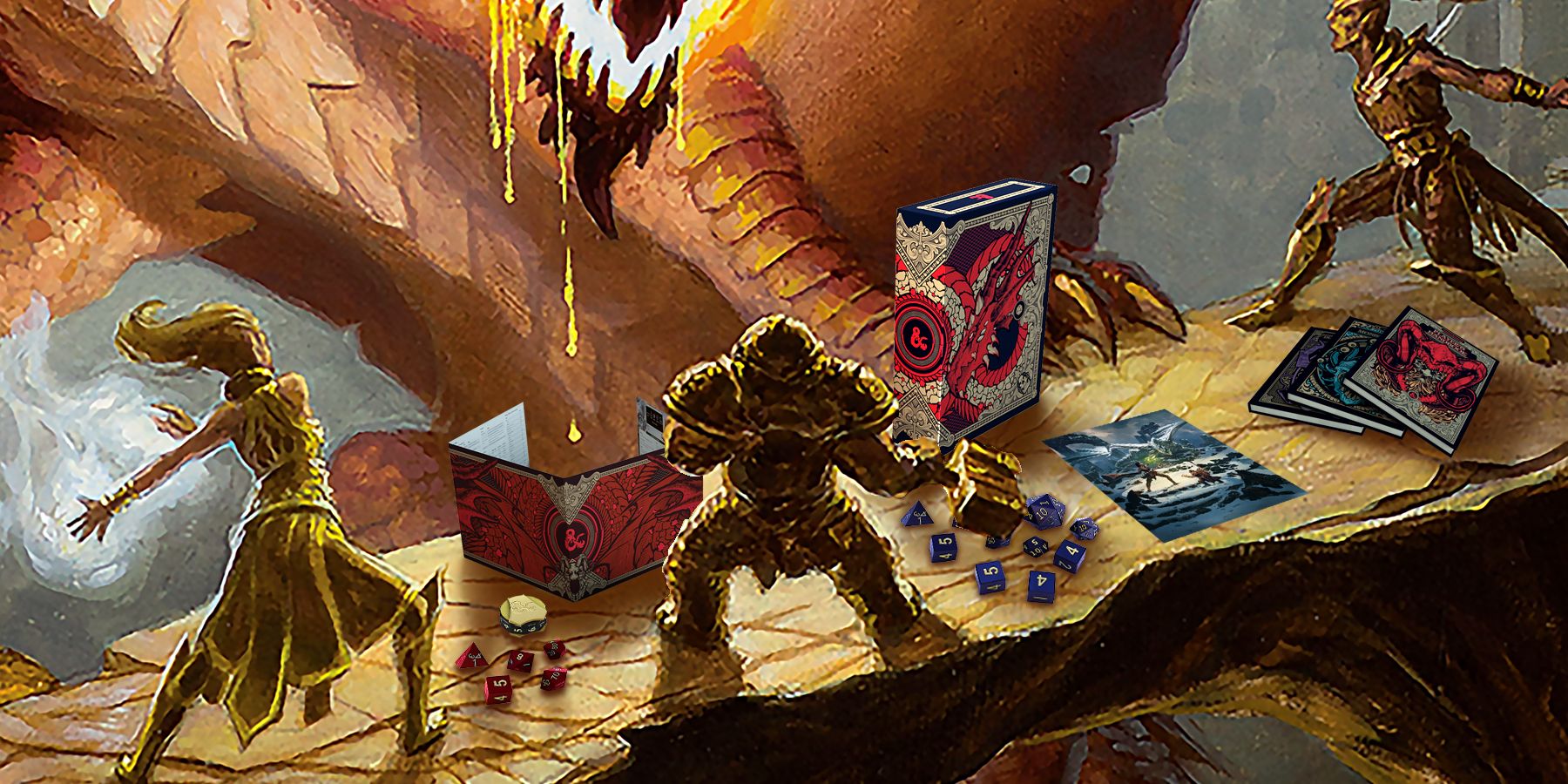
Dungeons & Dragons: 14 Tips For First-Time Players
D&D can look intimidating to newcomers. Worry not — with these tips and tricks, you'll be slaying dragons in no time.
Among the selected Profiencies, players can also choose two of them to have Expertise in, which doubles their Proficiency bonus. They can also use one of these Expertises towards their Thieves' Tools. This is highly recommended since rogues will be lockpicking a lot.
2 Subclasses
Time For Rogues To Branch Out
At level 3, each D&D class chooses their subclass. For rogues, the choices are Assassin, Thief, or Arcane Trickster. Some players may already have a subclass in mind when first creating their character. Others, especially newer players, may need to play with their rogues for a while and see what they like best about the class first.
For example, players who love sneaking, stabbing, and doing loads of damage should go with Assassin. Players who prefer agility and skullduggery ought to consider being a Thief. And for those who might be feeling some FOMO toward all the spellcasters in their party should go with Arcane Trickster.
1 Backgrounds and Feats
The Final Customization Options
Many Dungeons & Dragons players give their beloved characters backstories to explain why they are who they are and do what they do. Others just prefer to focus on stats and combat rather than storytelling. Regardless, each character has an official Background to give them a little extra flair. Some ideal Backgrounds for rogues include Charlatan, Criminal, or Urchin.
Similarly, feats are additional talents a character obtains as they level up, making their playstyle more unique. At levels 4, 8, 10, 12, 16, and 19, rogues can either increase their ability scores or select one of the following suggested Feats:
Feat: | Benefit: |
|---|---|
Alert |
|
Dungeon Delver |
|
Mobile |
|
Sharpshooter |
|
Skilled | Gain proficiency in any three skills or tools of your choosing. |
Skulker |
|

Dungeons & Dragons
- Created by
- E. Gary Gygax , Dave Arneson
- Creation Year
- 1974
Summary
Tabletop RPG

